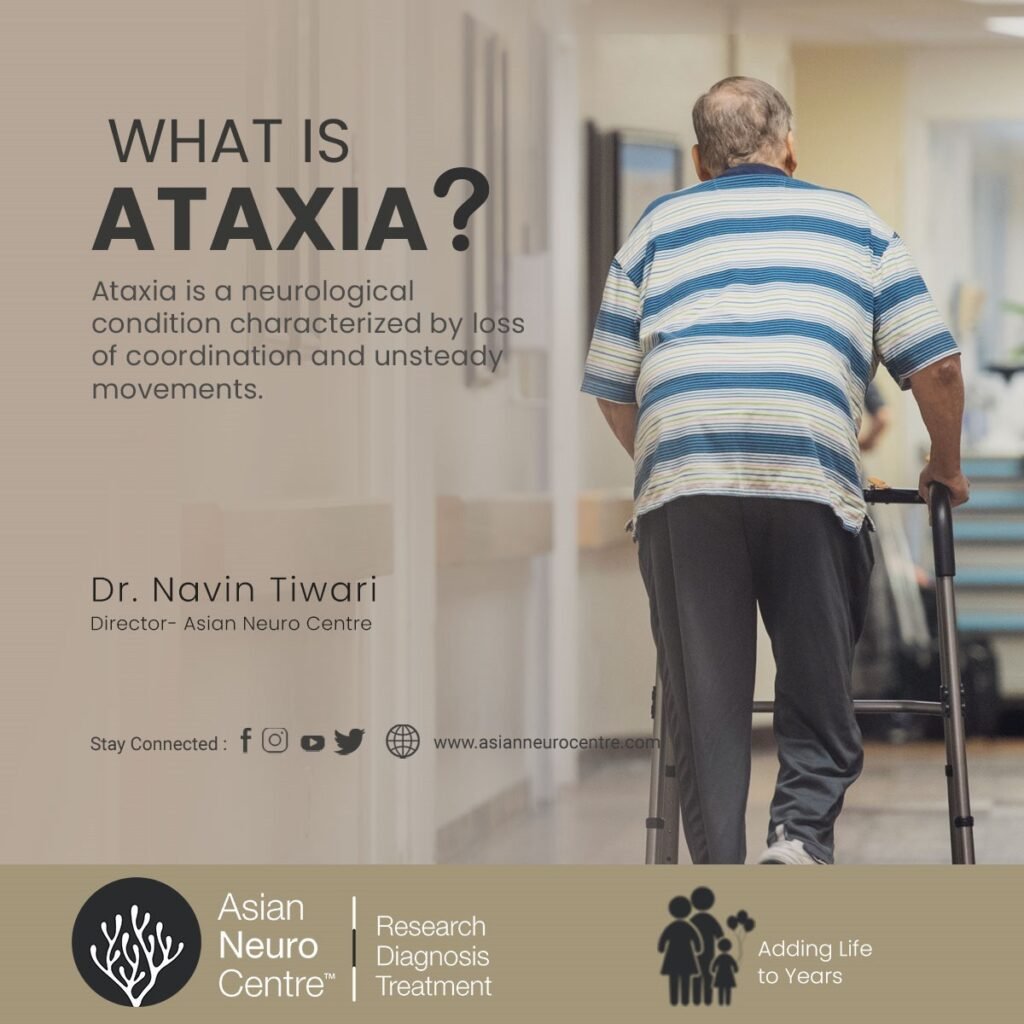- Have any questions?
- 911 12345 29
- info@asianneurocentre.com
What is Ataxia?, Symptoms, Causes, Treatment & More
What is Movement Disorder?, Symptoms, Causes, Treatment & More
November 20, 2023What is Ataxia Telangiectasia?, Symptoms, Causes, Treatment & More
November 29, 2023What is Ataxia?
Ataxia is a condition that affects coordination and balance. People with ataxia may experience difficulty walking, speaking, and performing fine motor tasks.
This happens because the part of the brain that controls muscle movement (the cerebellum) is damaged. The severity of ataxia varies, and it can progress over time.
Diagnosing ataxia involves a thorough examination by doctors. They will ask about your medical history, and symptoms, and conduct a physical examination to assess coordination and balance. Sometimes, genetic testing may be done to check for inherited forms of ataxia.

Symptoms of Ataxia
Symptoms of Ataxia are as follows:
- People with ataxia often find it challenging to walk steadily, talk clearly, and perform tasks that involve precise movements. The symptoms can vary, and the condition may worsen over time.
- difficulties with balance, causing unsteady walking and a tendency to fall.
- Simple tasks like writing or buttoning a shirt.
- Speech may be affected.
- Some individuals may also face swallowing difficulties.
Causes of Ataxia
Here are some causes mentioned below:
- It can be caused by various factors, such as damage to the brain, certain genetic conditions, or disorders like multiple sclerosis.
- Sometimes, injury, infections, or exposure to toxins may also lead to ataxia.
- Ataxia results from problems in the brain or nervous system that interfere with the signals needed for coordinated muscle movements. Identifying the underlying cause is crucial for proper management and treatment of ataxia.
Treatment of Ataxia
Treatment focuses on managing symptoms and improving quality of life. Physical therapy plays a crucial role, in helping individuals with ataxia enhance their muscle control and coordination through targeted exercises.
Medications may be prescribed to address specific symptoms like tremors or stiffness. Speech therapy may be beneficial if ataxia affects communication skills.
Regular medical check-ups help monitor the condition and adjust treatments as needed. A healthy lifestyle with proper nutrition and exercise can contribute to overall health. Consulting a doctor is necessary for proper treatment.
Dr. Navin Tiwari
Consulting Neurologist
